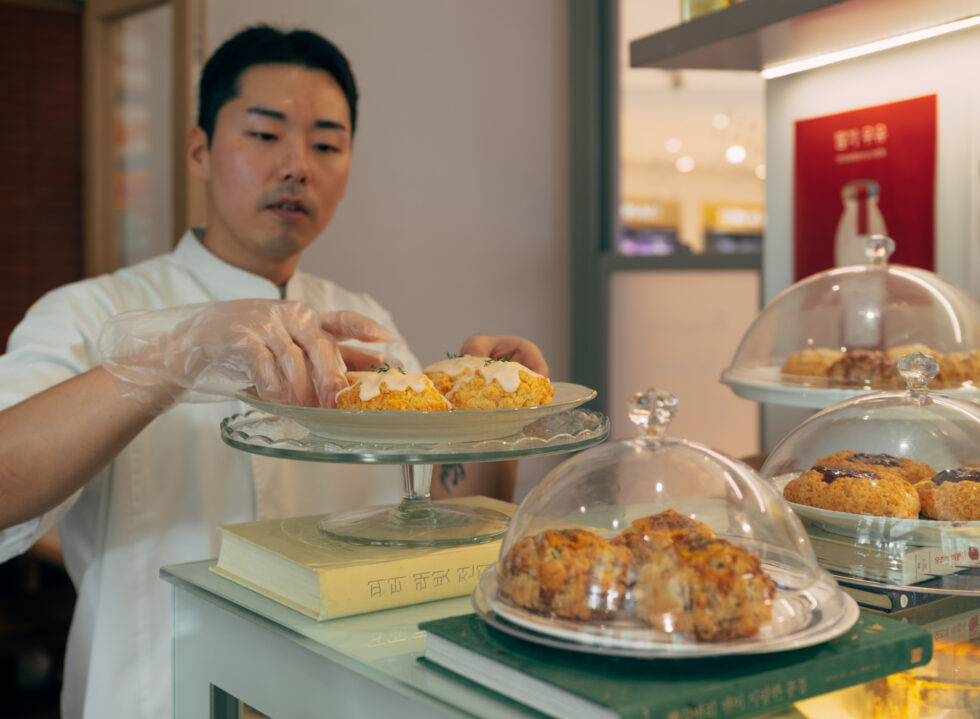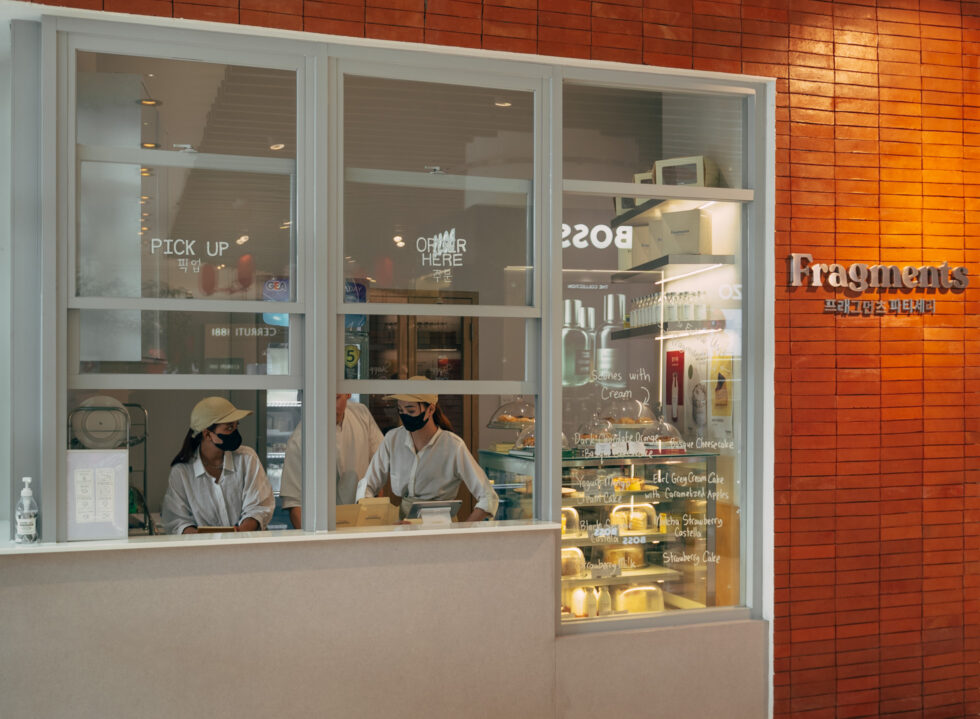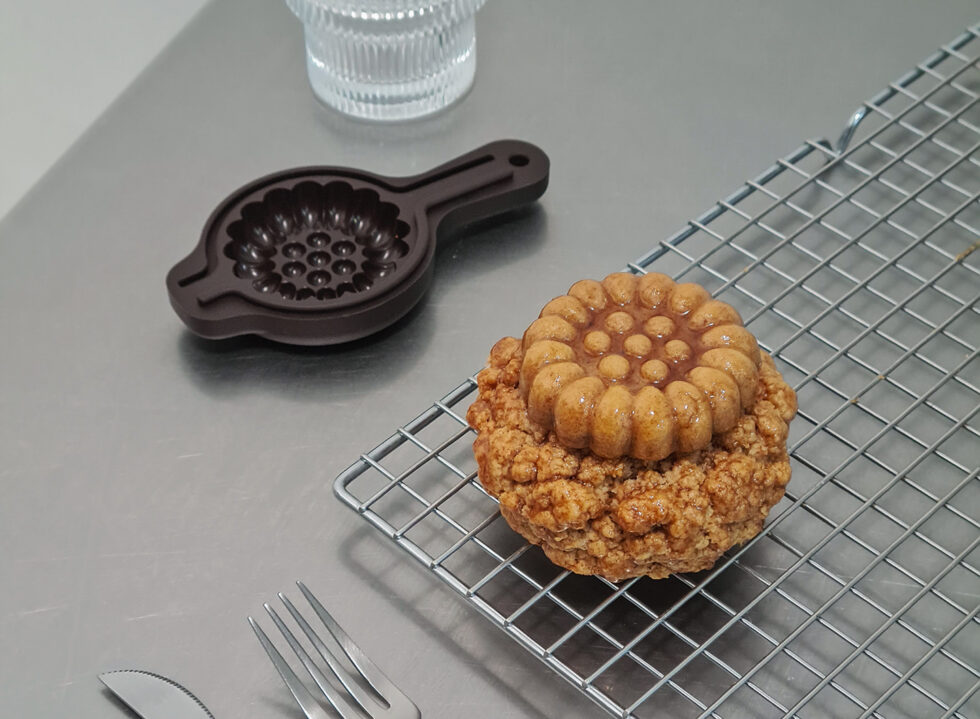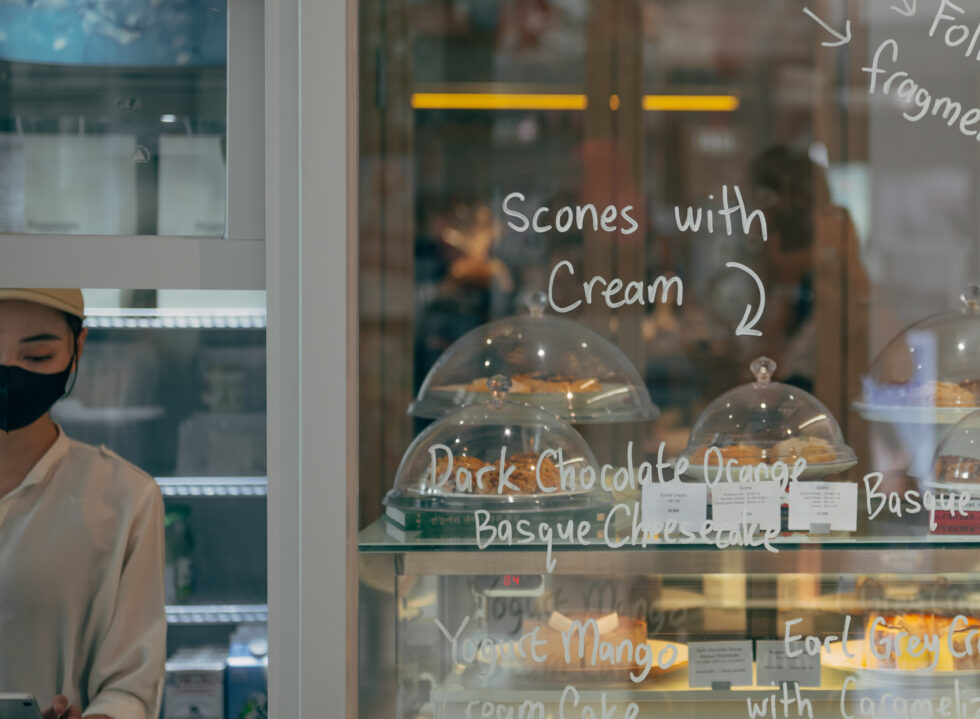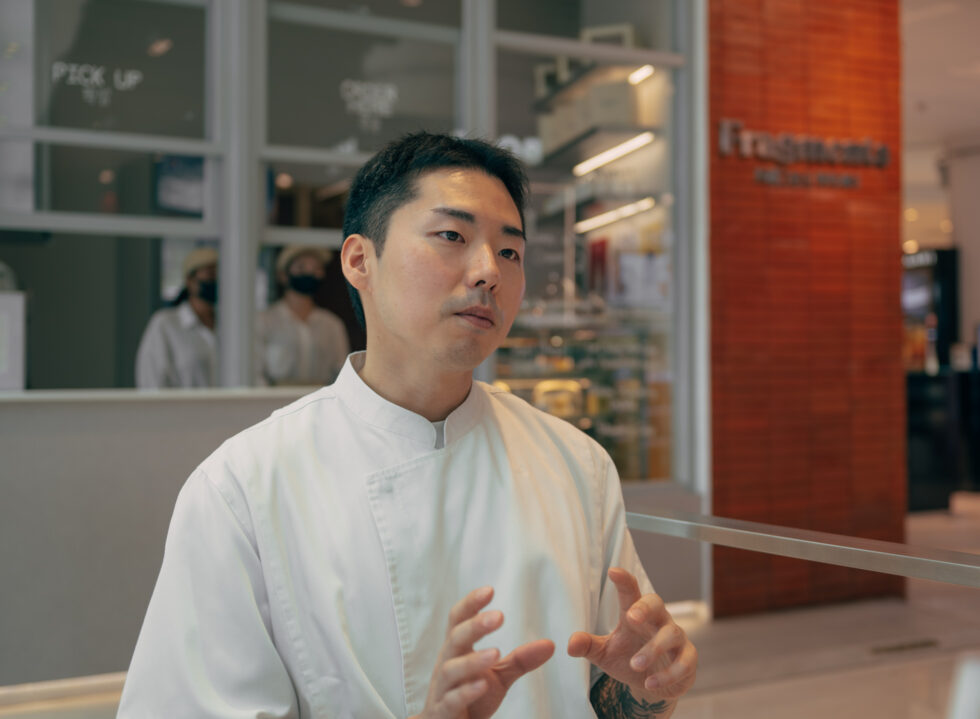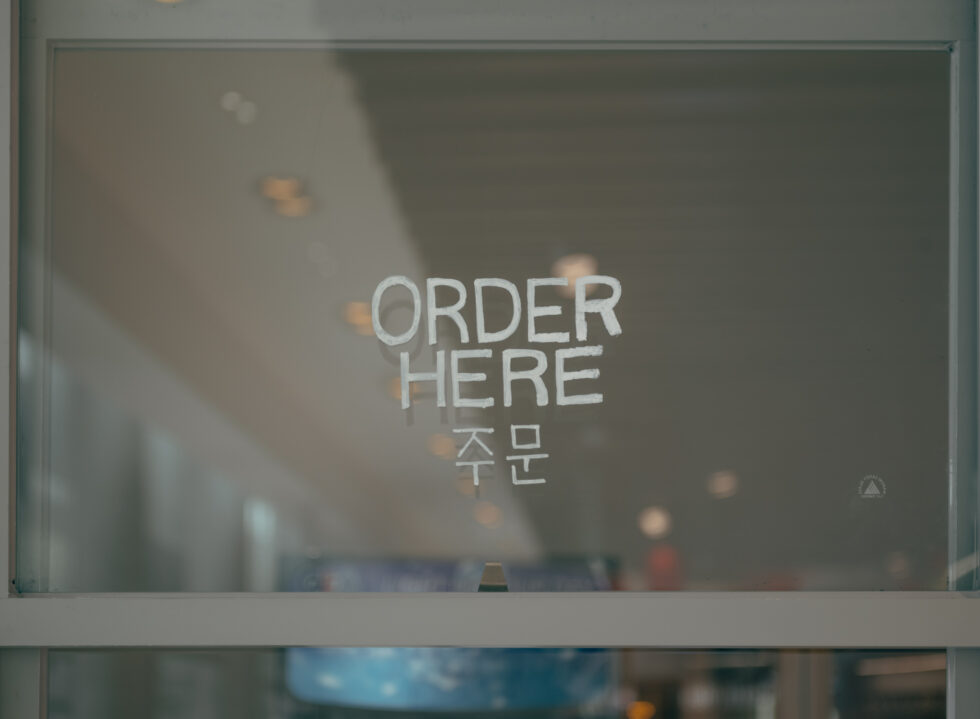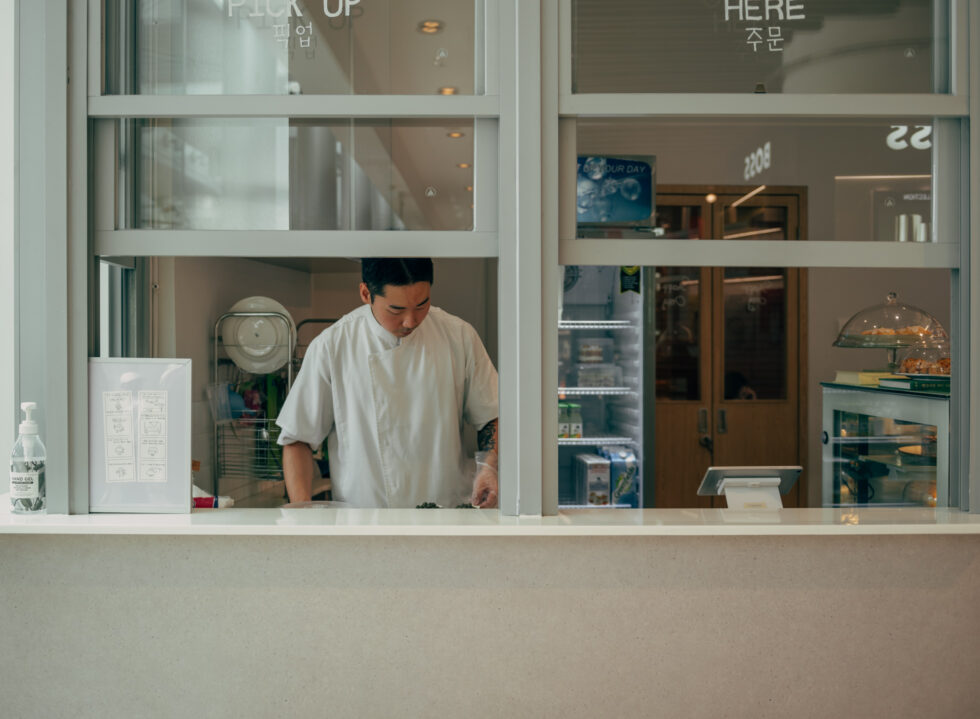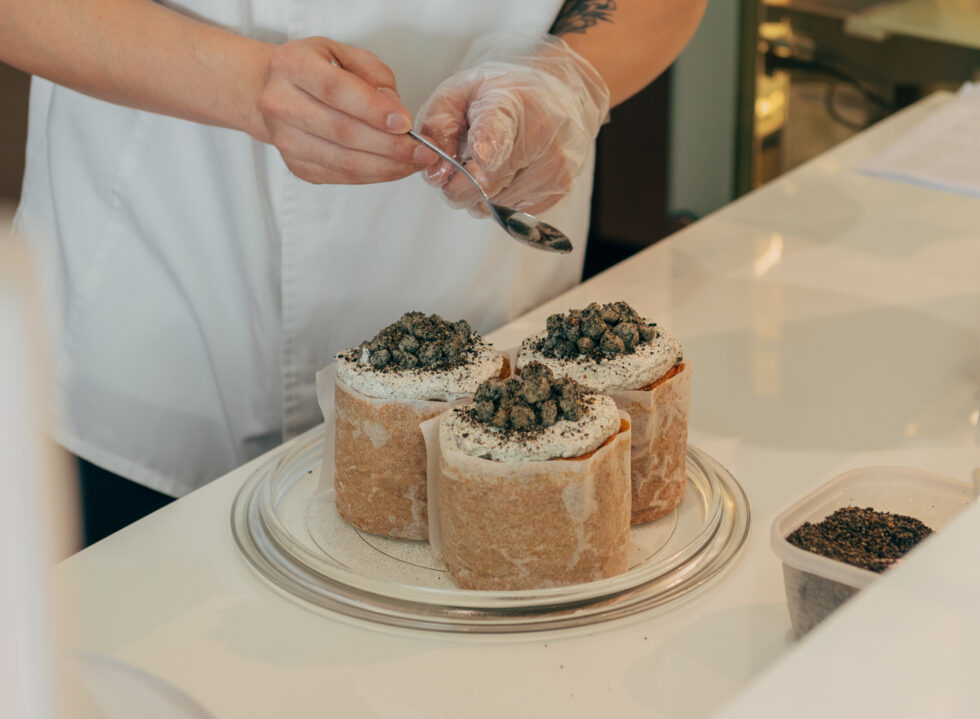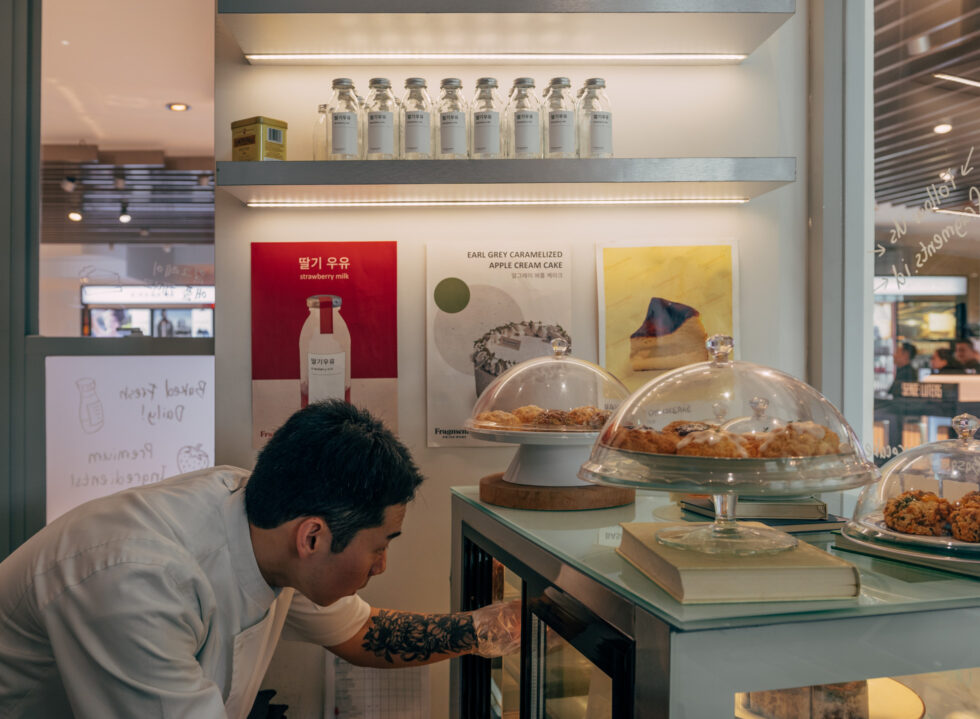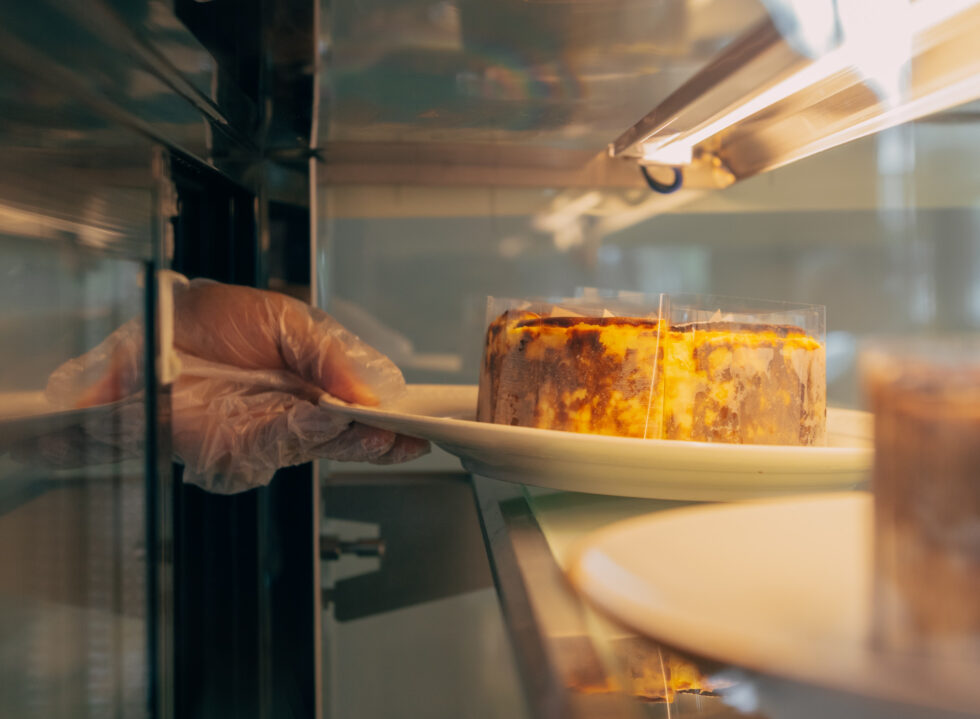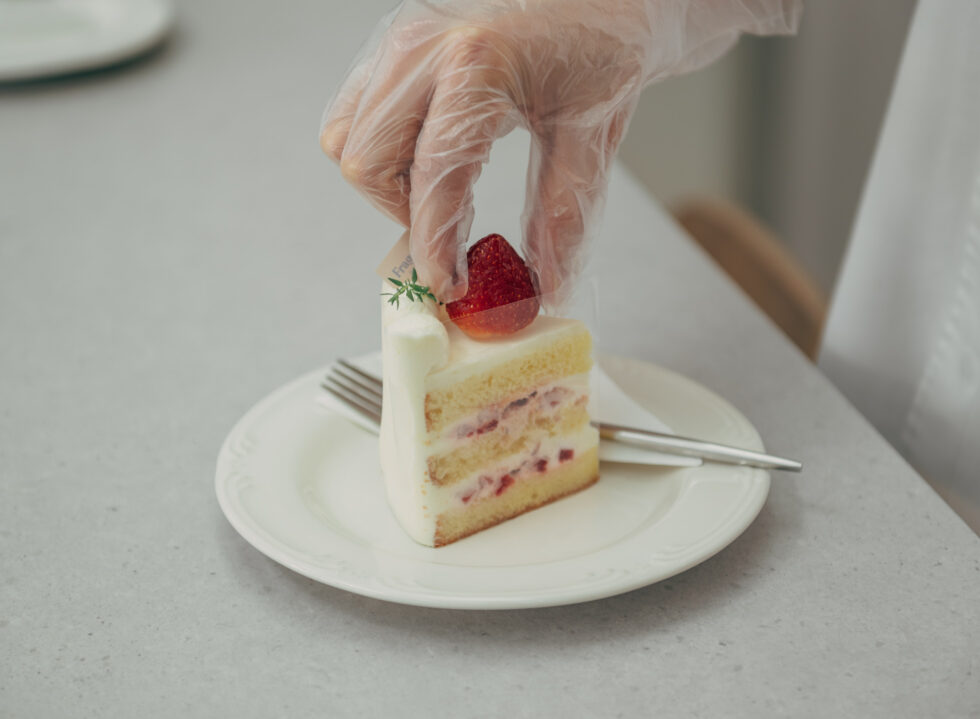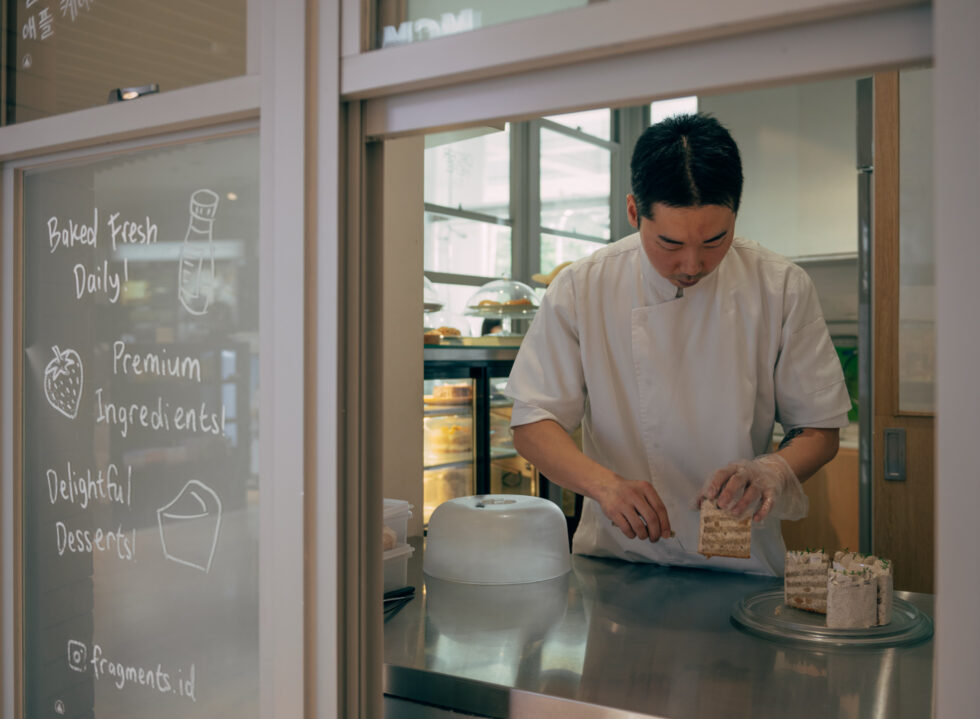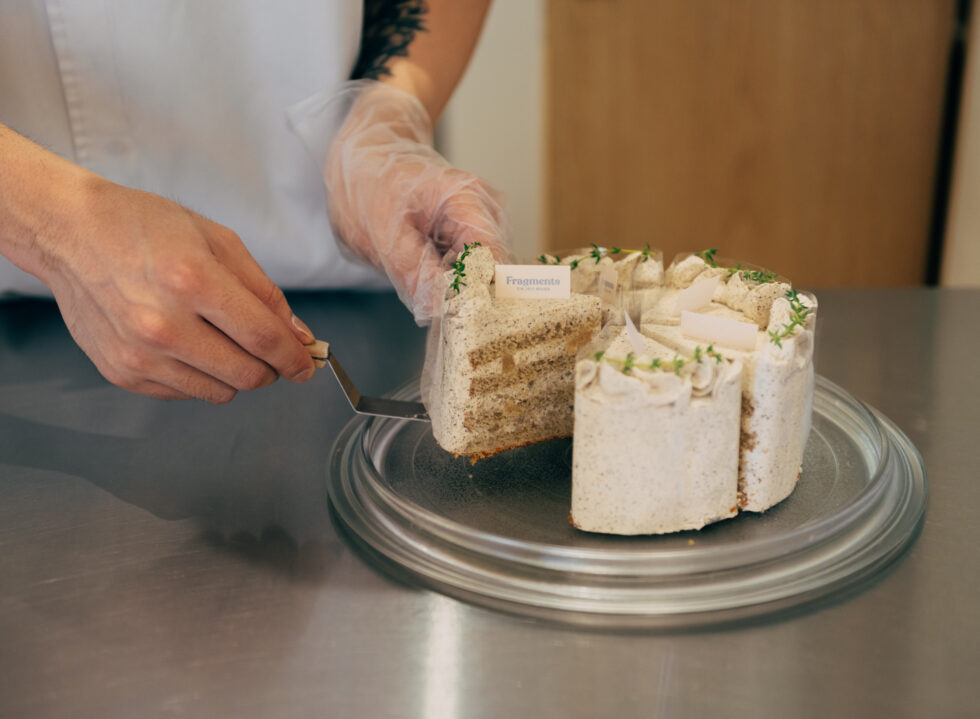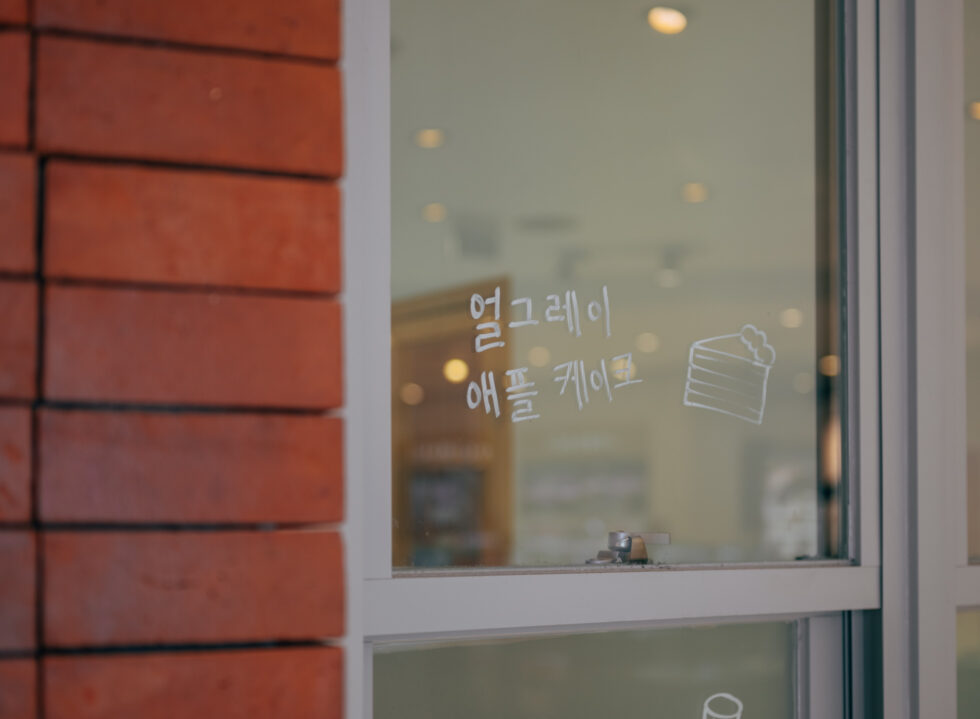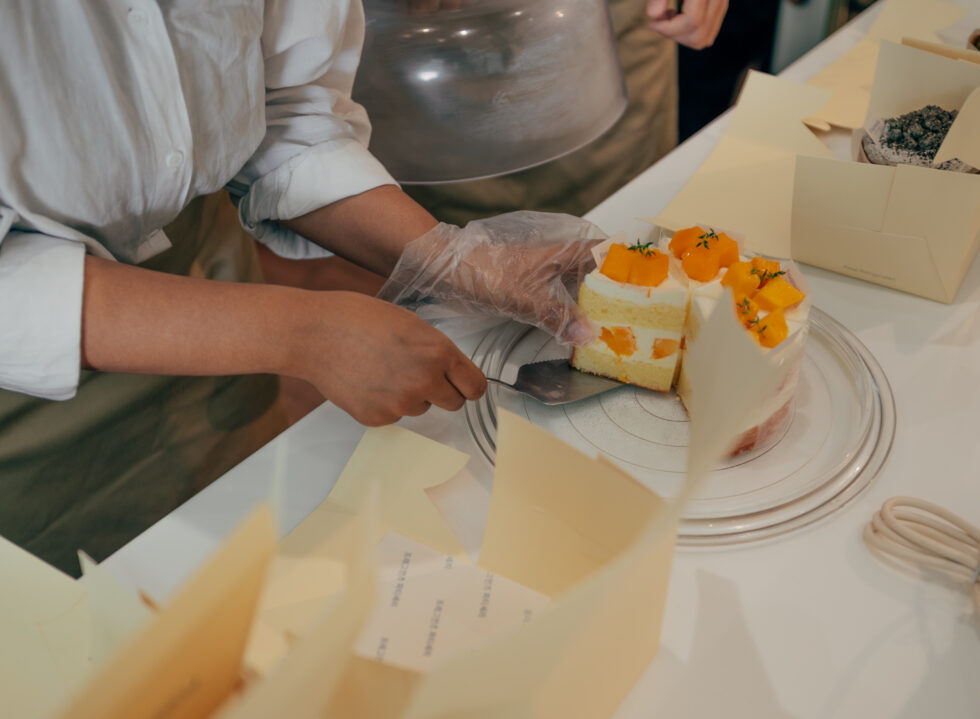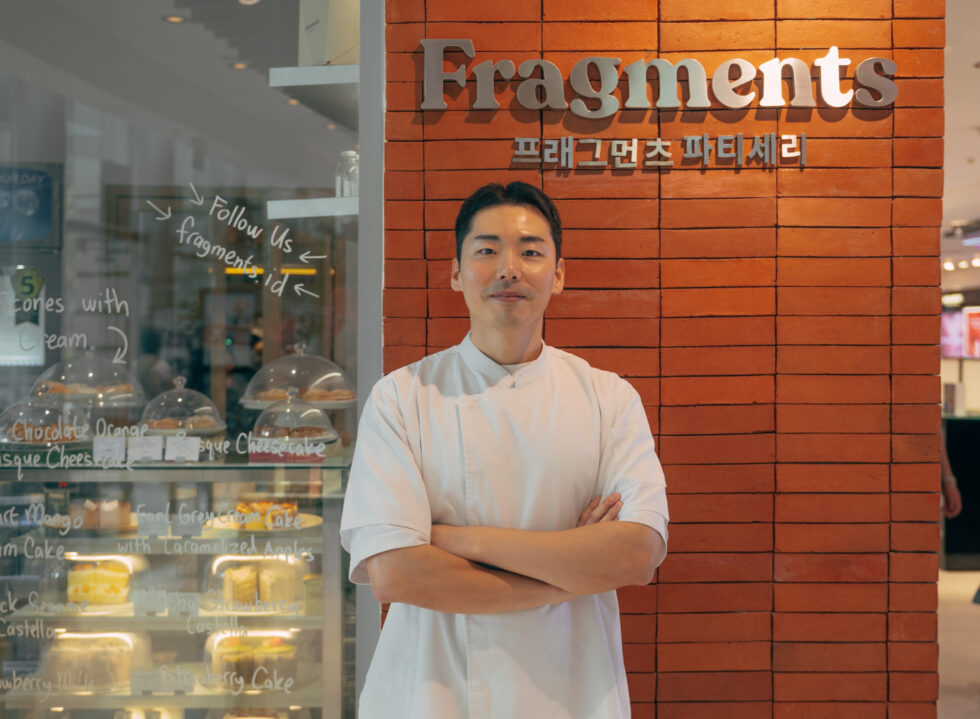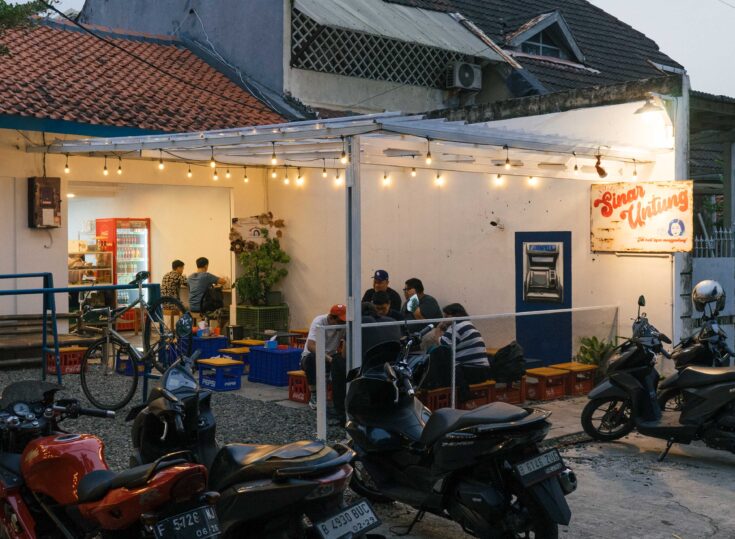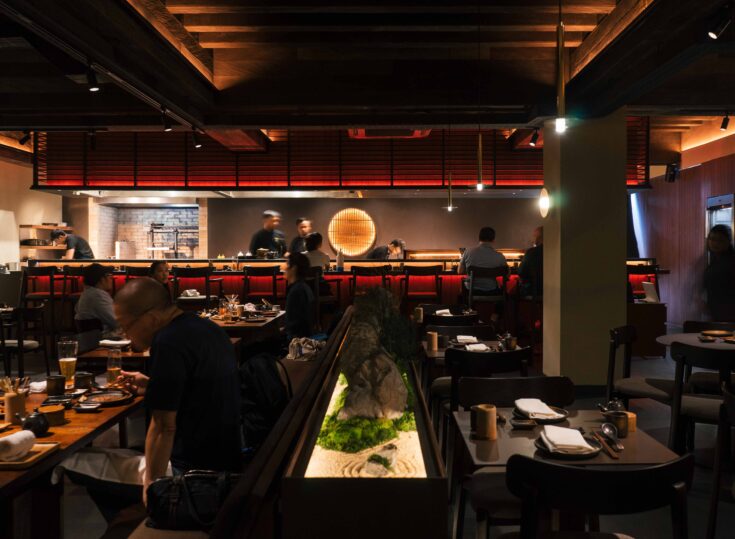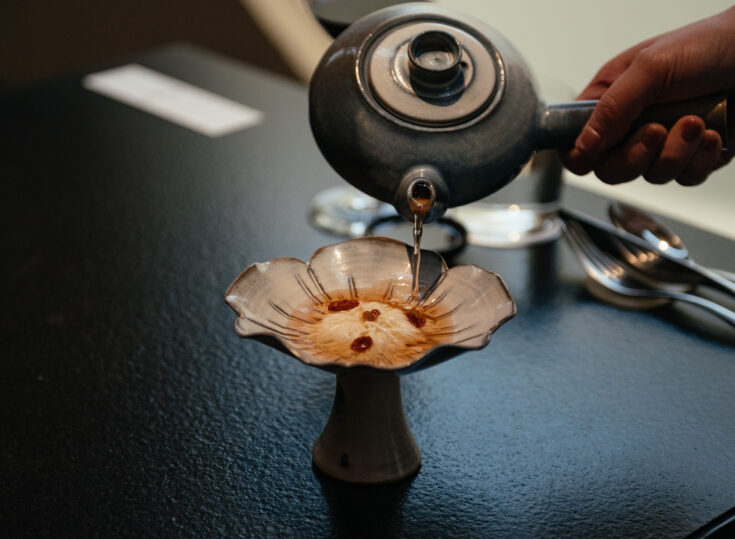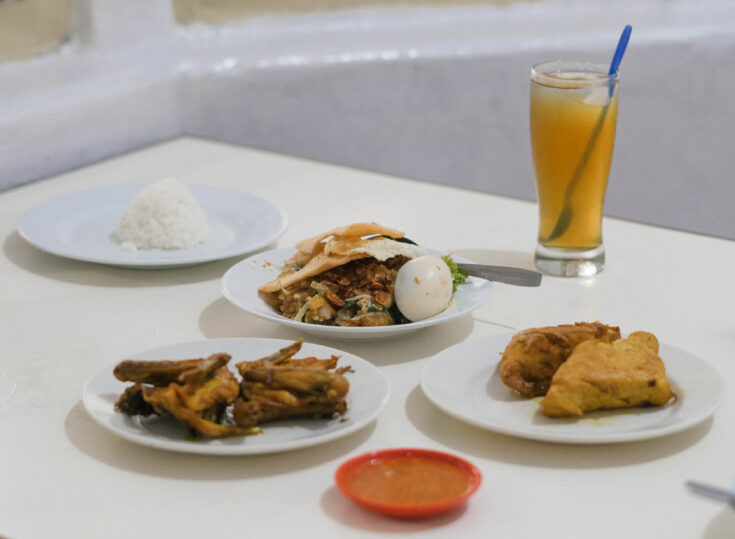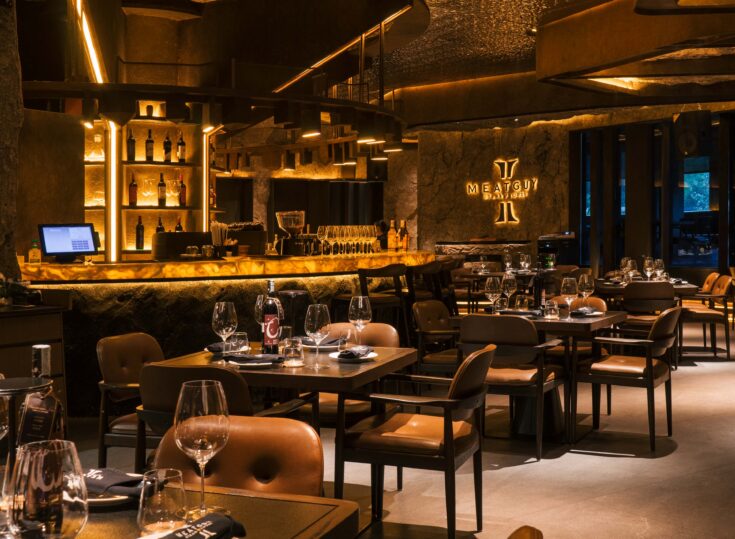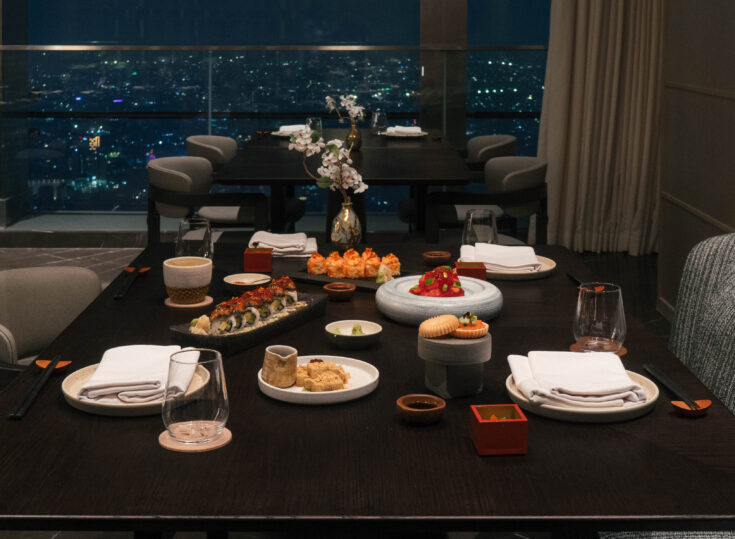“In Korea, dishes are typically made from rice, noodles, and soup,” said Jessi Sou, marketing director of Paris Baguette, in the article ‘Pastries Born in France, Raised in South Korea’ by Eater. “We helped Korean people to comfortably accept French baked goods. Only a few people knew about them back in the 1970s and 1980s, with a few small bakeries making the products in the country.”
A ubiquitous presence in South Korea with over 1000 locations around the peninsula, Paris Baguette and its equally known competitor TOUS Les JOURS wield the same influence of introducing French baked goods to the local audience, and in the process, adapting them to suit the local palate. Flavours such as red bean, green tea and sesame are integrated into croquettes, croissants and canelés, resulting in a seamless crossover of East-West creations that reveal their French inspiration, baking techniques and Korean background.
“In Korea, we like to have light desserts. We don’t really gravitate towards sweet or heavy flavours,” observed Ryan Kim, pastry chef and co-founder of Fragments Patisserie, which he started with his wife Michelle Tanujaya during the 2020 pandemic. Starting as a home online business to setting up an outlet at Grand Indonesia, their focus and commitment are on using good ingredients: French gourmet butter, house-made strawberry jam, quality Earl Grey and Japanese flour.
“Naturally, my Korean background and experience influence a lot of my ideas in the kitchen.”
Billing itself as a Korean-style patisserie, Fragments belongs to the same breed of bakers who are making already-known treats and modifying them to match their tastes. Their signature Basque cheesecake (a Spanish dessert that gained popularity in Korea) is made lighter and creamier; fresh cream cakes, a beloved Western dessert that has been reinterpreted across Asia, are infused with unique flavours and completed by the addition of cut fruits; while their scones, a less traditional version of the English pastry, appeal with variety of taste notes from lemon glaze and oregano parmesan to garlic butter.
“I’d say the making process is more ‘serious’, in a sense that we always try to draw real flavours from original ingredients,” opined Chef Ryan. “We don’t cheat the steps by adding essence or any artificial elements. So aside from the pretty aesthetic or adding Korean ingredients, I think this is also a big aspect of what makes our creations Korean-style.”
In the fine dining arena, a growing number of South Korean pastry chefs are making their names and skills heard, revealing their French training and Korean upbringing to create boundary-blurring creations. At Park Hyatt Hotel Paris, pastry chef Narae Kim fleshed out a dessert centred on nashi, a type of Korean pear, that she grew up eating in her hometown of Dangjin in South Korea. At Benu in San Francisco, Chef Erica Abe adds walnut praline to her version of hwagwaja, a traditional Korean cake made of white beans and rice.
“Trends keep changing [in South Korea’s dessert scene], but it has always been based on French influences.”
Treading the same philosophy of creating with a Korean touch is Chef Ryan. At the 2023 Jakarta Dessert Week, he created Yakgwa Scone, a fusion inspired by a traditional Korean snack of deep-fried, honey-infused cookies. “The main flavours here are cinnamon and jocheong, which is a traditional Korean syrup made from brown rice. But here, we made a baked version instead of the traditional fried cookie,” shared Chef Ryan. In the previous year, he also infused flavours of kimchi and injeolmi (a type of Korean rice cake) into scones.
“Naturally, my Korean background and experience influence a lot of my ideas in the kitchen. I tend to imagine and match the flavours that I know into a type of pastry and dessert that I want to create, like infusing traditional Korean snacks, or exploring what I can do with ingredients like kimchi or yuja.”
While the level of finesse expected in fine dining dessert-making isn’t what Chef Ryan has in mind for Fragments—leaving it to his other restaurant venture at SU MA where he developed desserts like the Nurungji, the scorched rice-based dessert housed within yuzu meringue—he resonates with the approach and process that fellow pastry chefs from South Korea have set in motion.
“Trends keep changing [in South Korea’s dessert scene], but it has always been based on French influences. It’s more innovative now with many creating their own style. By combining French techniques with our [Korean] background, it’s more common to see an already-familiar menu being turned into something else.”
